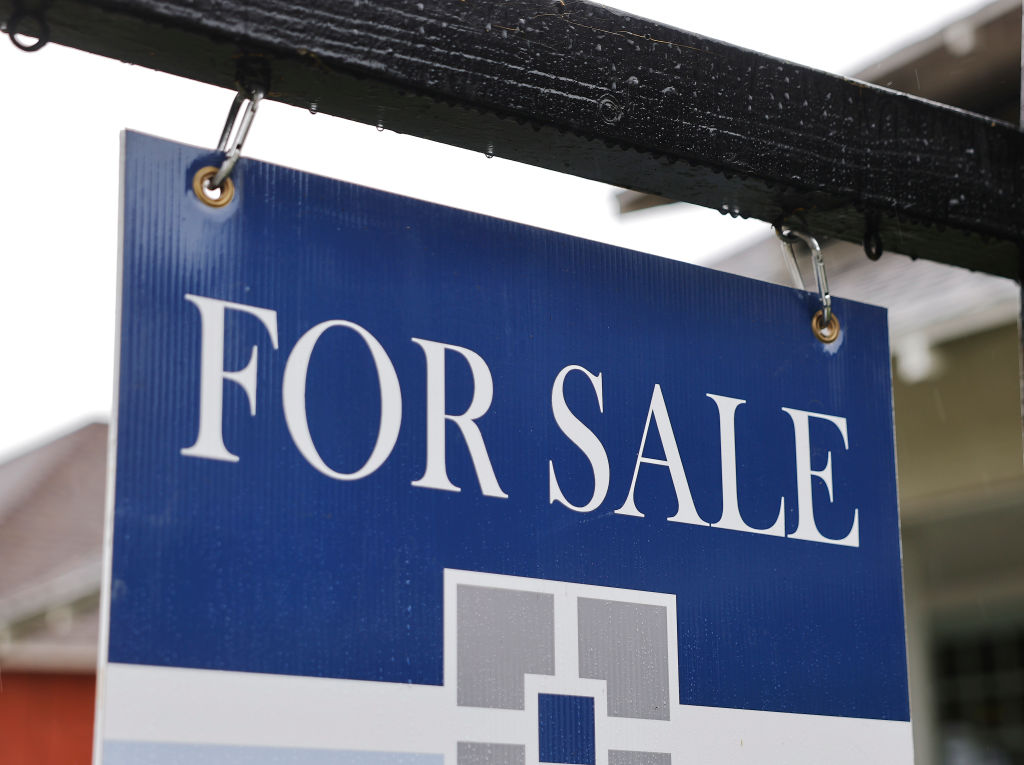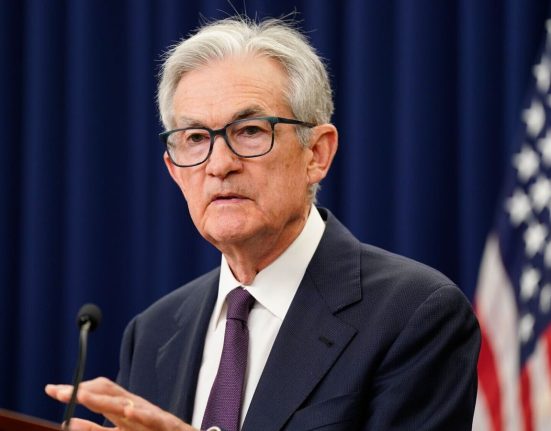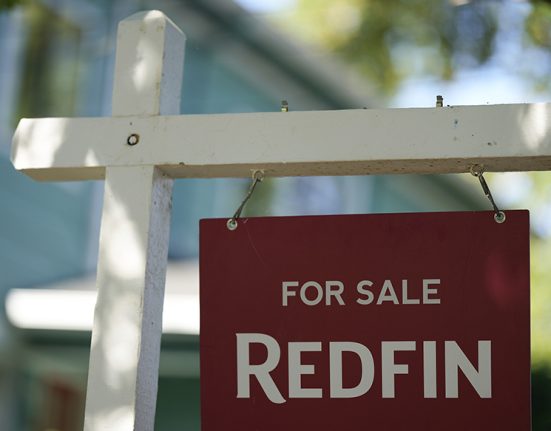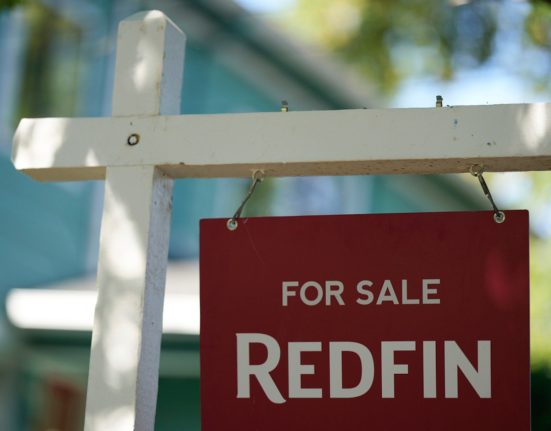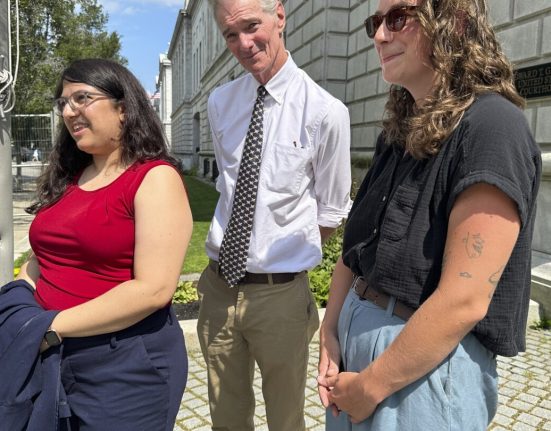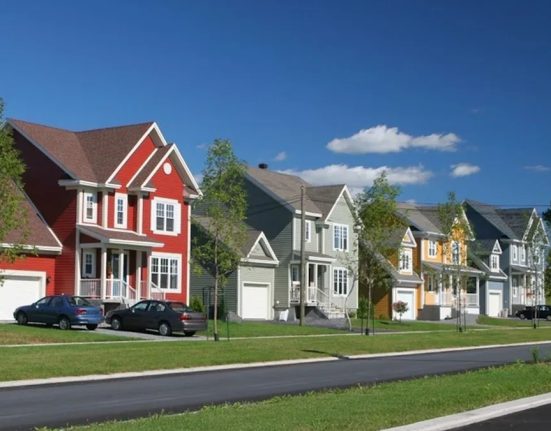A ‘For Sale’ sign is posted in front of a home for sale on March 5, 2025, in Pasadena, Calif. Credit – Mario Tama—Getty Images
Last week, after President Donald Trump’s introduction of his “Liberation Day” tariffs, the global and U.S. stock markets took a major hit, as Wall Street slumped and the U.S. dollar dipped.
As Trump introduced a blanket 10% tariffs on all imported goods, and additional import taxes placed on 60 other countries, last week saw the worst week for U.S. stocks since the markets crashed in 2020 during the COVID-19 pandemic. The Dow Jones average closed on Friday, April 4, 2,000 points down, the S&P Index plunged 6%, and Nasdaq dipped almost 6%.
Experts and consumers alike fear a recession as a result of the tariffs—and uncertainty and volatility in the markets have left homebuyers wondering how this will affect mortgage rates.
Throughout his campaign, Trump ran on a promise of affordability. Homebuyers’ concerns loomed large over the 2024 election as the housing crisis affected voters across the country, with high mortgage rates playing a central role in purchasing power.
Here’s what you need to know about what Trump’s tariffs mean for mortgage rates.
With concerns about economic growth and the stock market, investors are seeking the relative safety of the Treasury market, driving equities lower and bond prices higher.
As a result, the first week following Trump’s tariff news pushed interest rates down—as of April 3, one day after the president’s announcement, the 30-year fixed-rate mortgage was 6.64%, down 0.01 percentage points from a week earlier and 0.18 percentage points from a year earlier, according to the Federal Home Loan Mortgage Corporation.
And according to data released Wednesday by the Mortgage Bankers Association (MBA), mortgage applications last week jumped 20% from the prior week and reached the highest level since September 2024.
At the start of this week, though, mortgage rates began to climb on Monday and Tuesday as uncertainty continues to rock the economy on multiple sides.
Laurence Kotlikoff, professor of economics at Boston University, believes that the uncertainty in the market—and subsequently the risk of recession—will continue to hike up mortgage rates.
If people are looking to buy soon, he says now may be the lowest the mortgage rates will be for some time.
“We could see 10% mortgage rates with what’s going on here,” Kotlikoff told TIME. “Initial mortgages with their adjustable rates might have been lower for a few days last week, but the longer term picture here is that we just had five years of cumulative 25% inflation. Mortgage rates are high because of that, and if inflation tends to head up, I think you can see mortgage rates at 10% because there’s just extra risk.”

